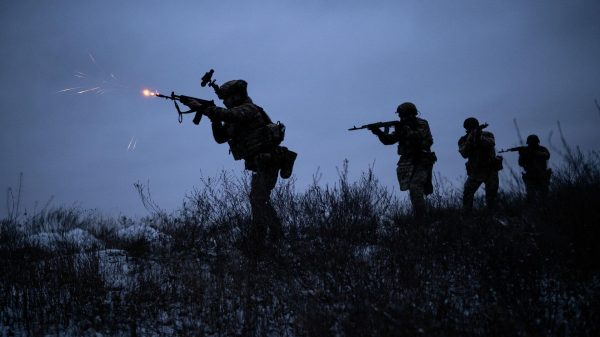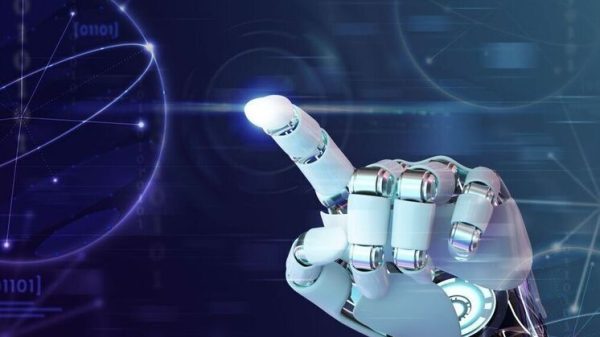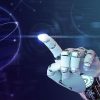
< br />
KATHMANDU (NEPAL), May 16, Olga Lipich.The main difference between human consciousness and animals is the language that appeared in the process of evolution, and mammals and birds are united with people by the presence of both cognitive and phenomenal consciousness, while the latter is not needed by artificial intelligence, large language models like the GPT chatbot, a participant said in an interview International conference «How to study and understand consciousness in non-humans» in May in Kathmandu, world-renowned Cambridge neuropsychologist Nicholas Humphrey.
LANGUAGE AND SENSES
«I think we can say that a living being is conscious when it has introspective access to his mental states when he knows what is on his mind. This is the simplest definition,» Humphrey said.
To the question about the main difference between human consciousness and the consciousness of animals, he answered: “This is language. Language makes the most complex constructions possible.” Humphrey agrees that the emergence of language can be called a «quantum leap» in evolution.
According to him, people and such highly developed animals, such as chimpanzees, dogs or parrots, deal with sensory experience, phenomenal consciousness — a high level of consciousness. “Such animals have visual qualia (subjective sensations), for example, they see the color red. They feel pain and experience other feelings. In this regard, we can be on the same level,” the agency’s interlocutor suggested.
“But I believe that animals do not think about their phenomenal consciousness, do not reflect in the same way as a person does. I am sure that dogs, for example, are not interested in whether you really see the color red the same way as I see it,” Humphrey noted. 
COGNITIVE AND PHENOMENAL
The emergence of consciousness, the scientist is sure, is due to evolution, natural selection, and survival advantages. But there are also animals that, according to Humphrey, do not need consciousness at all — for example, jellyfish.
Humphrey distinguishes two levels of consciousness: cognitive (from the Latin cognitio “I know”) and phenomenal (from the Greek phainomenon “appearing”) — sensory, associated with phenomenal sensations, phenomenal experience, with the concept of “I”. Many animals and insects have cognitive consciousness, including octopuses and bees. But the latter do not have phenomenal consciousness. Consciousness of both species, both cognitive and phenomenal, is possessed only by warm-blooded animals, in particular, mammals, monkeys, dogs, as well as parrots and some other species of birds.
«Many advanced animals, such as octopuses, have very sophisticated thinking, very highly developed cognitive consciousness, but I do not believe that they have phenomenal consciousness. Because in interaction with other creatures they do not show any understanding of this kind — the octopus does not understand that means to be another octopus, while, for example, a dog understands what it is like to be a dog, or to be a human,” explained the neuropsychologist.
According to the observations of scientists, dogs in general have very highly developed feelings and emotions. that demonstrate. For example, a dog will feel the loss of its beloved owner, and this will be expressed in its bodily sensations, behavior, and facial expressions.
FROM ZOMBIE TO RESCUE
However, a huge number of animals on the planet, including many insects and crustaceans, according to Humphrey, can be considered «zombies». “I use this science fiction term to describe creatures whose behavior indicates the absence of any glimpses of phenomenal consciousness. At the same time, zombies can have introspective access to knowledge. That is, they can have a developed cognitive level of consciousness,” — noted the researcher.
Glimpses of phenomenal consciousness, he said, appeared in the animal world about 200 million years ago, when in a new environment some animals became warm-blooded. “Warm-bloodedness gave them independence from the environment — and the advantage for them was to have an “I”, phenomenal sensations and consciousness. Now you are an individual who is not determined by the environment, you can do what you want, you can fly, swim, walk wherever you want. A new type of attitude towards oneself is emerging. Warm-bloodedness has also accelerated processes in the brain several times,” explained the agency’s interlocutor.
Humphrey showed participants at the international forum on animal consciousness in Kathmandu a documentary video in which, somewhere on the tracks in India, one monkey loses consciousness, and another, agitated by this, begins to act almost like a professional rescuer. She actually carries out resuscitation measures, uses water to bring her relative to life — and in the end succeeds.
«This film shows strong empathy towards another living creature similar to itself. No one taught it this. This means that the monkey has the concept of “I”, and it is able to transfer this to another creature. This is a very high level of intelligence and sensory consciousness. And we see the adaptive value of such consciousness, based on phenomenal experience. You will not find this type of behavior in those species of animals that do not have phenomenal consciousness, not in frogs, not in lizards, not even in a “smart” octopus. It will not save. another octopus, because it has no concept of “I,” Humphrey believes.
REFLECTION AND REFLEX
When asked whether “reflection” is like thinking about what I think and do , a manifestation of higher-level consciousness, Humphrey responded that it is “a form of cognitive consciousness and does not necessarily involve phenomenal sensations, although it may include them.
“If we talk about animals, then they have no need to reflect in the spirit of Buddhist monks — to think at such a high level of what they are thinking about, to build such complex mental structures, to practice,” said the neuropsychologist.
At the same time, he added, there is some evidence that dogs or chimpanzees can think about what other animals think about. “And perhaps they can also think about what other animals think about them, for example, have thoughts such as: I know that you know that I know that you know,” the scientist noted.
The dog’s desire to please the owner, in his opinion, can be both a manifestation of consciousness and a reflex developed thanks to the owner’s reinforcement, a “bone” for the joy brought.
WILD AND DOMESTIC
Humphrey does not share the opinion that pets that constantly communicate with humans should be a priori more conscious. “The life of a domestic animal is very simple, compared to the life of an animal in the wild, for example, a wolf or a tiger. A wild animal must constantly build relationships with the changing world around him, other animals, must be even more aware, aware of what they are thinking… So consciousness is much more necessary for the survival of wild animals than domestic ones,” the agency’s interlocutor suggested.
At the same time, Humphrey does not exclude that animals that have lived for centuries next to people may someday speak to humans, for example, due to some kind of genetic transformation. “This is exactly what happened with people. Because language is an advantage, a benefit. But for animals, even highly developed ones like chimpanzees or dogs, the problem of starting to speak is that they do not have good enough vocalization,” — said the scientist.
In addition to oral speech, there is, of course, also written… In any case, according to the scientist, “natural selection led to the appearance of language in people” — and in principle, “artificial selection of animals by humans can achieve a similar result.” “But this must be a special program, training, intention… It’s like what happened with machines: when the corresponding programs appeared, they “learned to speak” because it became beneficial for interaction and communication,” the agency’s interlocutor explained.
SIMITATION OF CONSCIOUSNESS
A machine, artificial intelligence, including large language models, a GPT-4 chatbot, according to Humphrey, can now only have a cognitive type of consciousness. “I don’t see any evidence of phenomenal consciousness in artificial intelligence,” said the neuroscientist.
When asked whether AI could also have phenomenal consciousness in the future, Humphrey replied that it was possible in principle if humans engineered such AI consciousness. «Everything a biological being does can be imitated in the machine world. But why would we do that?» — noted the neuropsychologist.
He believes that giving AI phenomenal consciousness is a bad idea until science understands these issues better. “But right now there is no risk of artificial intelligence developing phenomenal consciousness: no one can really do this right now,” Humphrey concluded. media-type=»ar16x9″ data-crop-ratio=»0.5625″ data-crop-width=»600″ data-crop-height=»338″ data-source-sid=»rian_photo» title=»Academician Konstantin Anokhin on conference on animal consciousness and artificial intelligence in Kathmandu» class=»lazyload» width=»1920″ height=»1080″ decoding=»async» />
SCIENCE OF CONSCIOUSNESS
Scientists around the world have still not come to a unified definition of consciousness, agreed upon criteria and methods for studying this phenomenon; theories, empirical data, tests, interpretations, and positions of different researchers diverge. And it was no coincidence that the international conference in Kathmandu in May received the title: “How to study and understand consciousness in non-humans.” According to its scientific organizer — director of the Institute for Advanced Brain Research at Moscow State University named after M.V. Lomonosov, Academician of the Russian Academy of Sciences, neurophysiologist Konstantin Anokhin, the main goal of the forum is to advance in the development of a program for scientific research of consciousness. Moreover, we are talking about any consciousness, both in different species of animals, and in humans or artificial intelligence — about consciousness as a phenomenon.
The conference brought together dozens of experts in the field of consciousness from all over the world. Among them are famous neuroscientists, physiologists, biologists, ethologists, psychologists, philosophers from Russia, Great Britain, Germany, France, Italy, Sweden, Israel, India, Japan, Australia, USA, Canada, South Africa. The forum was also attended by doctors of Buddhist philosophy, which has been studying issues of consciousness, including animals, for two and a half thousand years. Among the Russian speakers and guests of the conference: Head of the Laboratory of Cellular Neurobiology of Learning at the Institute of Higher Nervous Activity and Neurophysiology of the Russian Academy of Sciences, Academician Pavel Balaban; Head of the Laboratory of Neurophysiology and Brain-Computer Interfaces, Moscow State University named after M.V. Lomonosov Professor Alexander Kaplan; Director of the Institute of Cognitive Research of St. Petersburg State University, Academician of the Russian Academy of Education, Honored Scientist of the Russian Federation Tatyana Chernigovskaya.
The forum was organized by the Moscow Foundation for Promoting Humane and Responsible Treatment of Animals «Wind Cat».























































Свежие комментарии